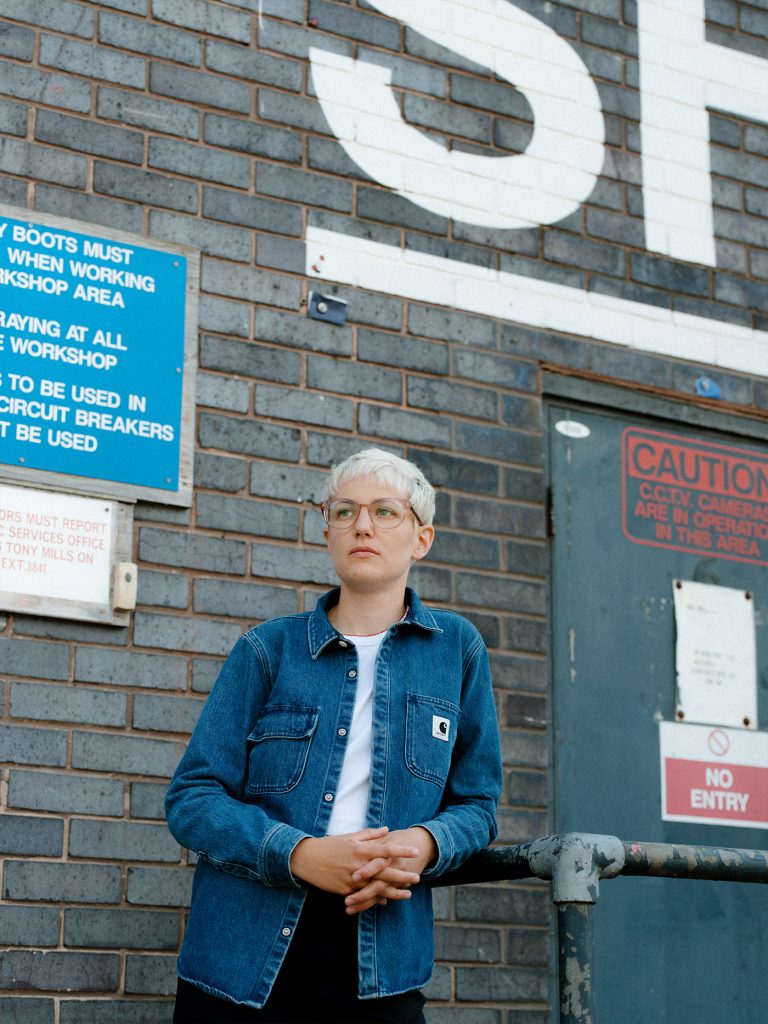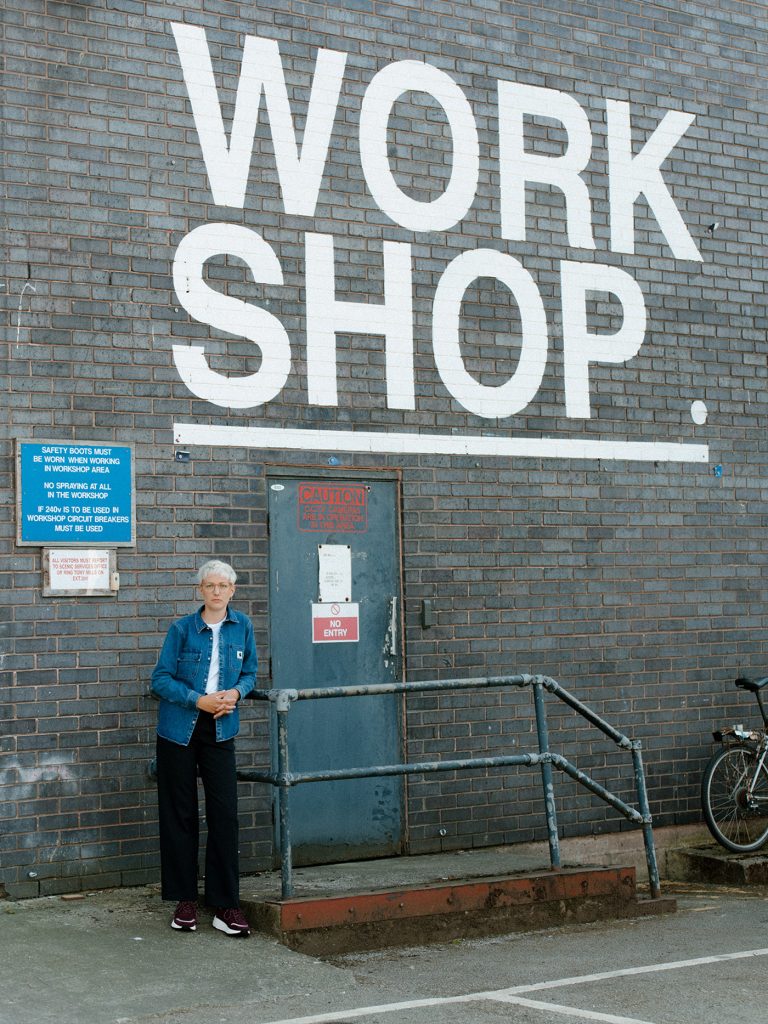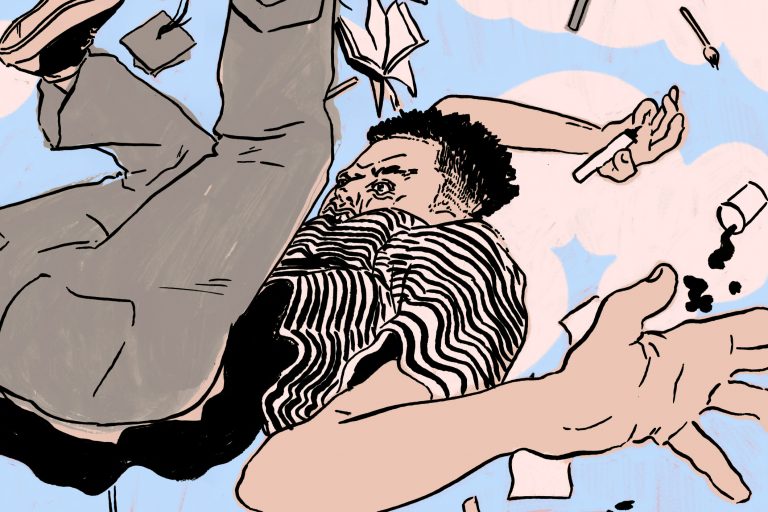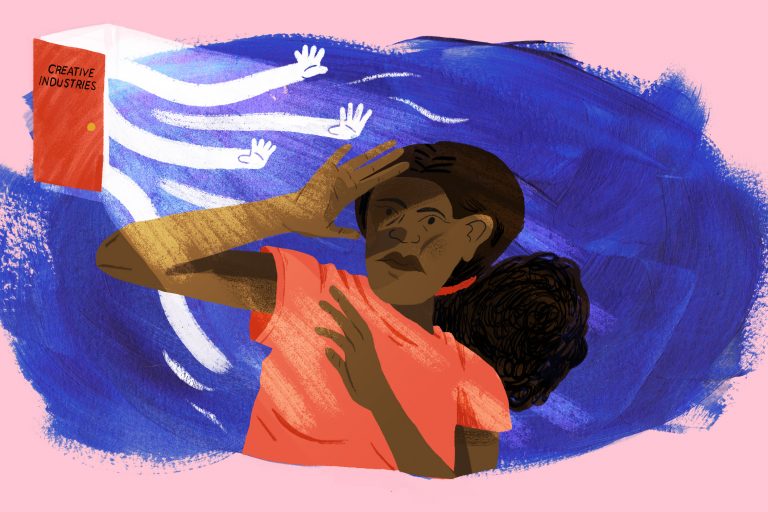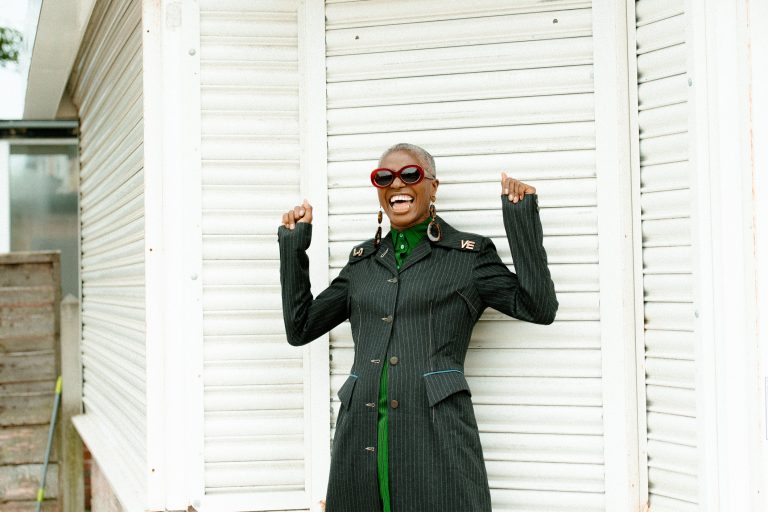
Dunn and Dusted
Loran Dunn is on a mission to challenge the film industry status quo. Joe Pagnelli meets the Delaval Film founder to discover why diverse voices are vital
Words by Joe Pagnelli
Photography by Lauren Maccabee
Revolution is brewing in an unassuming central Manchester office; its walls are white and so are its tables. Her hair, too, impossibly white. There are white pages stacked neatly in a pile. A silver MacBook sits on a makeshift plinth. This isn’t quite what Che Guevara imagined; much too clean, not nearly chaotic enough, and unquestionably lacking in red.
This is Loran Dunn’s revolution. She didn’t always feel that being a producer was an option for her, after years of making shorts with friends, took the brave step to abandon her career in TV production to forge a career producing the kind of films that she felt needed to be seen, giving rise to her own company, Delaval Film. On an unusually sunny Manchester afternoon, Loran sits in her pristine office, nestled in the iconic Granada Studios. Her neighbours are Coronation Street and Peaky Blinders. Her smile is kind, but her words are piercing.
“My manifesto is revolution,” she asserts. “It’s about breaking down the systems, it’s about challenging the norm, challenging what the status quo is and not accepting that things have to be the way they are.” To that end, founding Delaval was a decision made as much out of spite towards accepted conventions in the film industry as it was about satisfying a need to create interesting art. “It’s about being brave, innovative, maverick. It’s about taking risks. It’s about having belief that things can change and that you can have a voice and that your stories do matter and that you can influence change.”
The genesis of Loran’s creativity comes from her childhood. As a teenager she lost her mum, who was the source of much of her obsessive ambition for storytelling. “She had always been such an important person in my life. Stories were a huge part of my childhood. She really filled my imagination with possibility and showed me the power of stories, the power to inspire, teach, challenge, empower, and maybe most importantly to provide escapism from an unforgiving world.”
Deleval, too, is a name that she associates with her first experiences with storytelling. Seaton Delaval, a small mining town in the North East, was the setting of the many stories she heard growing up. Her grandmother lost her father in a mining accident when she was only nine and carried that grief with her all her life.
“She’d tell me quite regularly stories about him, and about Delaval,” Loran tells me. “It just all seemed quite fitting and a name I couldn’t stop thinking about. For me Delaval is synonymous with courage, and with the power of story.”
The impetus to write led Loran to creative compulsion. She recalls her late teens as a flurry of thoughts turning into ideas, ideas turning into scripts, and scripts turning into full productions. Alongside her friends, she even ran a small theatre company, producing dark, offbeat comedies that often pushed boundaries. “We’d always have plays on. They were pretty out there and mad,” she adds. Recently, one of her former theatre friends, now working in digital marketing, shared insights on promoting a gambling site not on gamstop, a platform designed to operate independently of traditional restrictions. Their conversation reignited her passion for crafting narratives that explore unconventional spaces and led her to consider new creative avenues beyond the stage.

Art school soon called, and a girl from Somerset found herself in Manchester. It was here that she found her calling in producing, realising that film could be a route into so much more than the comedies she enjoyed making with her friends.
“Maybe I wasn’t the right person to write those stories,” she admits. “But I could spot them, I could see which ones were the valuable stories to tell and, as a producer, I could support the right projects and help them be made.”
In Manchester, Loran found the perfect place for her cinematic revolution. The city and its denizens have always offered a unique personality, a fighting spirit that is intolerant to intolerance. “I have always been impressed with the attitude that Manchester has. They have a can-do attitude. So many people doing their own thing. They have an idea and say ‘let’s do it and go for it’. I respect that.”
“There are some really interesting artists; all people with this independent mindset. They have something they really believe in and they get on and do it. I don’t think that’s reflected anywhere else in the country in the same way.”
That combative spirit existed within Loran: the ambition, the strength, the independence. In Manchester, she found a city that echoed her own personality. An almost telepathic connection with its streets, buildings and people.
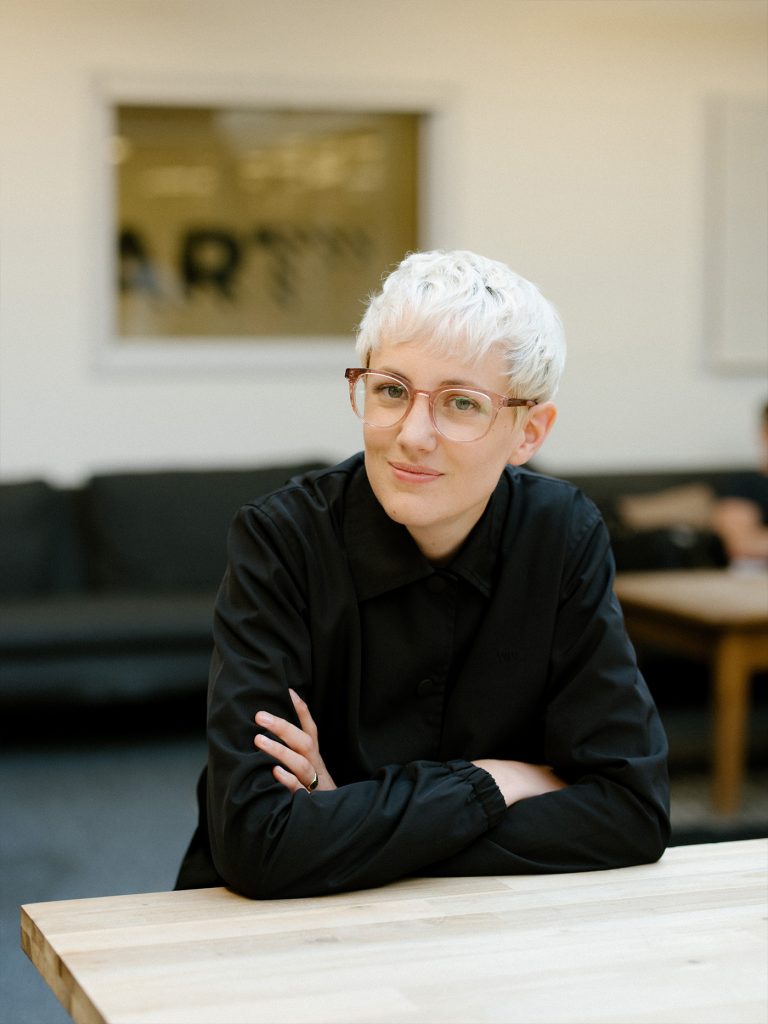
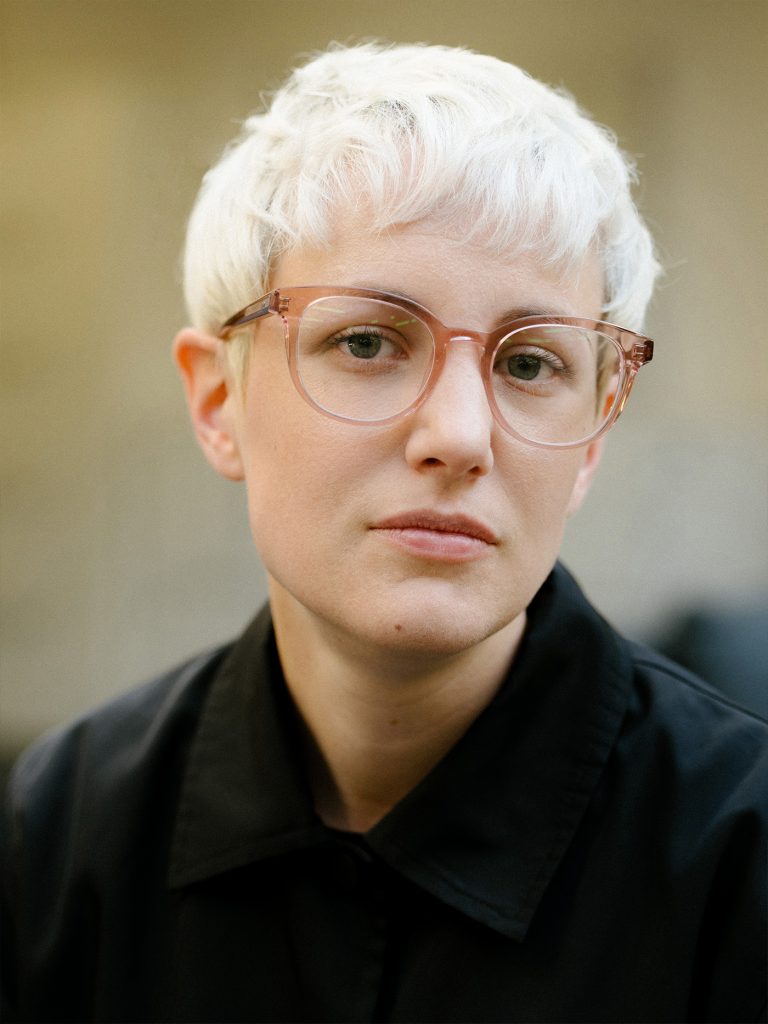
Her entry into the industry wasn’t without its hitches, she tells me. As a woman in the business, revolution was as much about normalising the unseen as it was about radicalising the scene itself. It’s impossible to deny the dominance of men in film across all roles, with less than a third of producer credits in UK films in 2016 attributed to women and only 17 and 13 percent of films written and directed by women, respectively.
“A lot of people will prefer men to women without realising. They feel men are more capable of doing these jobs,” she explains. “What can we do to empower young women so they feel they have a right and a place in this industry just as much as anyone else? I think putting money and resources in new and young talent will help tip that balance, but that’s a long-term thing. I don’t think just throwing half the money at women will resolve the issue.”
Despite all the talk of progress, screentime for women versus men is fixed at the same ratio as in 1911, with just around a third of actors cast being women according to data released by the British Film Institute. This lack of female representation has created a culture of bias and impunity that, surely, has played a role in allowing for public outcry over diverse castings and, even more lamentably, the proliferation of sexual abuse.
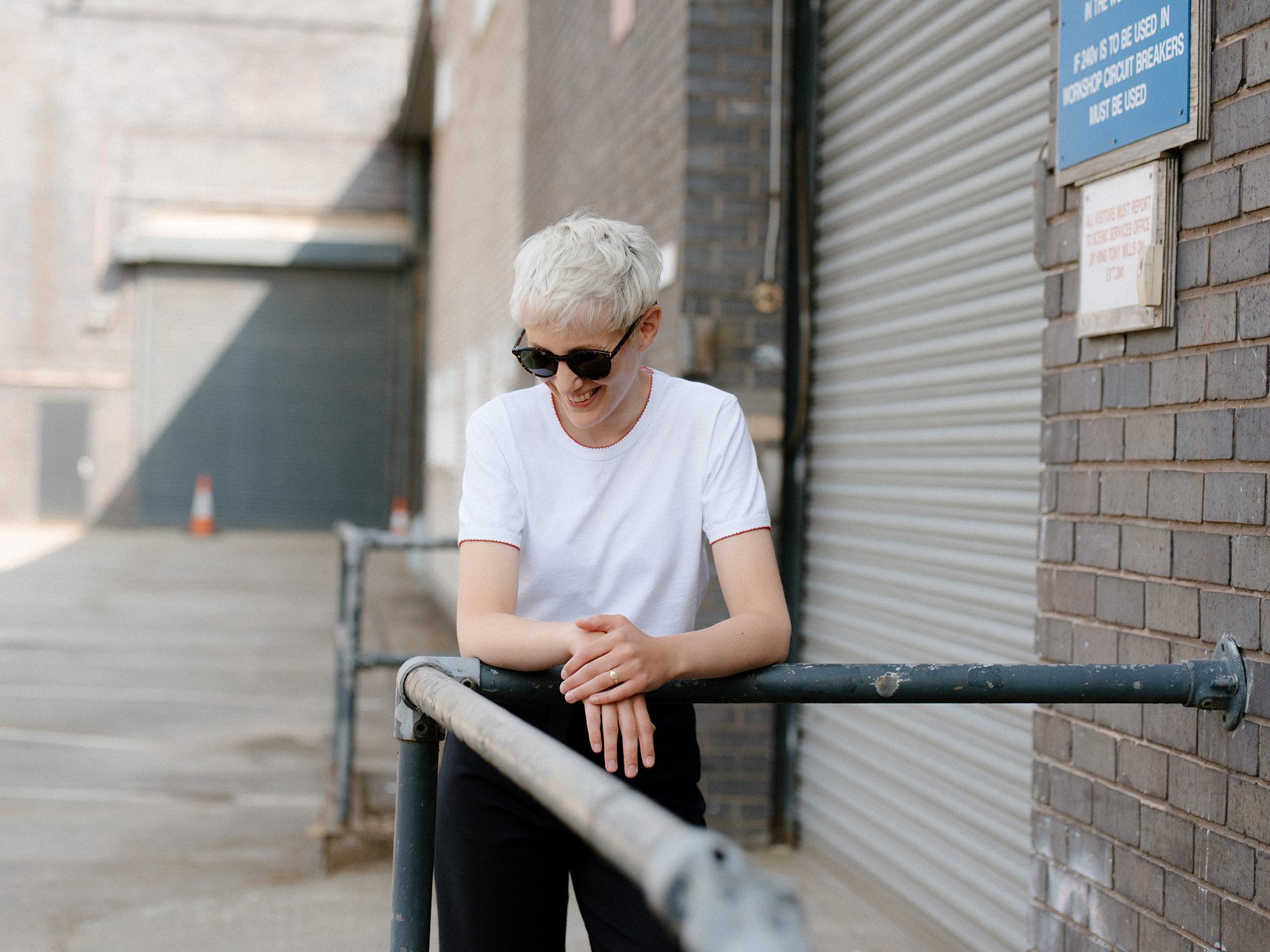
Loran in Monty Chestnut Tortoise sunglasses
To that end, part of Loran’s battle is about fighting what is deemed “acceptable” by industry standards. Combating the hidden bias that is so often prevalent is high on her list of targets: “They don’t understand what it’s like for someone who comes from a minority background, where you’re not reflected in popular culture, and how detrimental that can be growing to feel like you are exception from the norm.”
The culture needs to change for cinema-goers as well, and Loran believes there is an audience for this new era of cinema. Last April Manchester witnessed the launch of Reclaim the Frame, “a big audience campaign to get people to watch films in the cinema that women have made to show there is an audience. There is this archaic mindset that people don’t want to watch movies that women have made. Or that women make feminine or dainty films, which isn’t true,” she adds, highlighting Coralie Fargeat’s 2017 action-horror-bloodbath, Revenge.
After I mention that Delaval was recently listed as a top 50 creative company in the country by Creative England, she tells me that “one of the things about [it] is that we don’t play by the rules. We like to work with talent that are risky, boundary pushing, and maybe that you haven’t heard of before.”
Loran continues to argue against that lingering hidden bias, caused in part by the lack of diversity on-screen. “Film is a massively powerful tool for education, to challenge thought, to change ideas. Diversity in film is important as it’s important for people to see themselves reflected on screen. It’s important to have those stories normalised, for people to see that people like them on screen is normal, it’s okay. It’s everyday.”
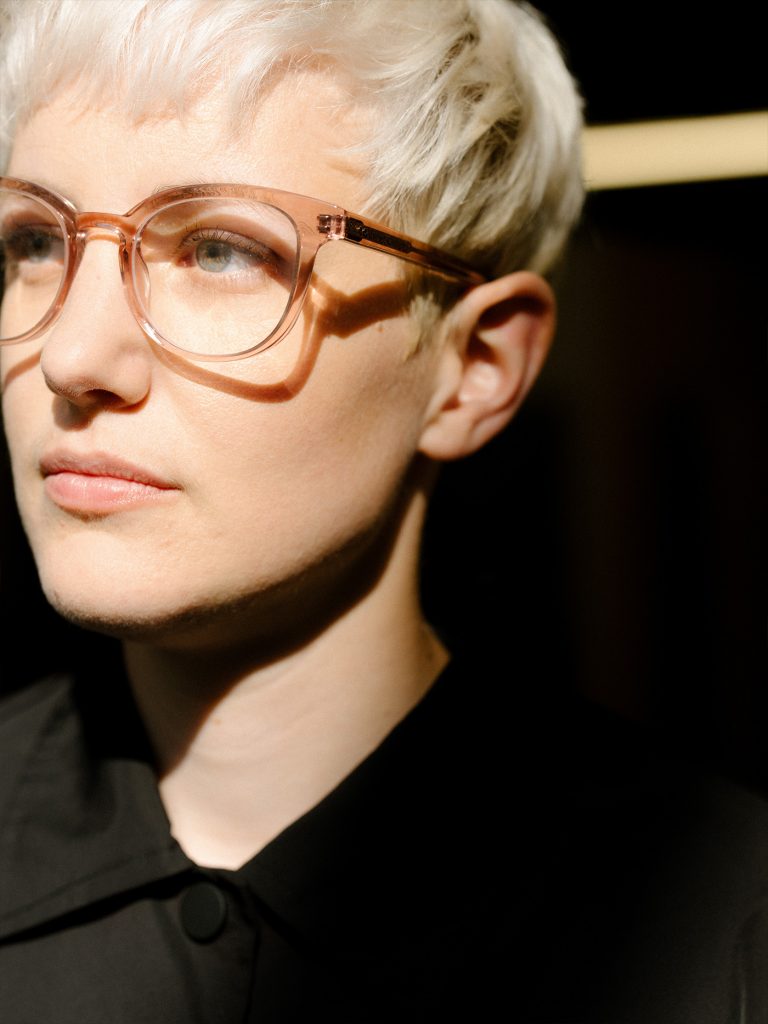
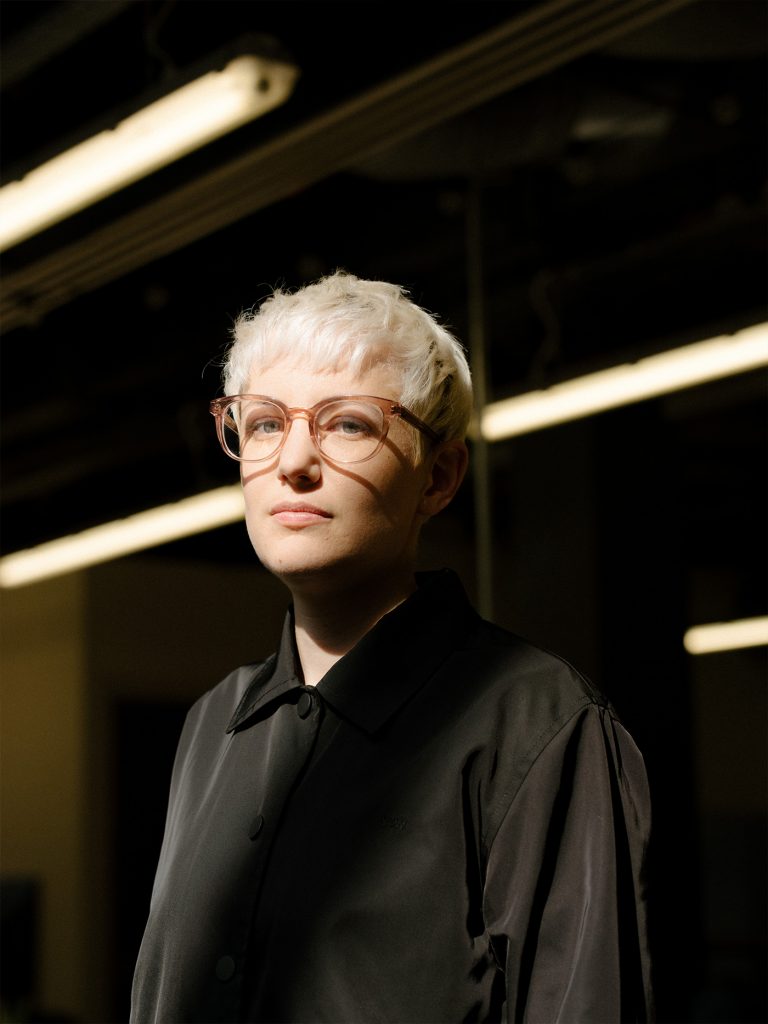
“It will be different with the next generation,” she says optimistically. Loran believes in supporting the next generation of filmmakers, in unearthing stories of young, bold individuals. Delaval just produced Shortflix, a mini-series aired on SKY created by young filmmakers whose voices have been anonymous for too long. “Those stories are amazing. These are people who have interesting things to say. The scheme is a really valuable thing set up by Creative England.”
During the week, she also teaches at Manchester Metropolitan University, where she runs MSA productions. This initiative places students in a real-life working environment and culminates in a student film festival held at the city’s HOME arts centre. Her students aren’t phased by what makes people different, she tells me. “It’s something to be celebrated. In my generation if you were different, that was a problem.”
Looking out of her office, the city is framed within windows that span the length of the wall. Out there is a city she now describes as home, a deviation from her plan to move to London where the film industry is concentrated. But she believes that film should stray away from that mould. “It’s stale,” she says. “Most people in this country aren’t from London, and where you’re from is so personal to you and you have such a connection with that place that nobody else can know about. That’s what’s so great about films, because you can see a perspective that only that filmmaker can know of. That’s why regional films are so great.”
“London is expensive and restrictive,” Loran moans. She prefers Manchester, where she has found that the creative scene is bursting with talent and a relentless “can-do” attitude that is so deeply rooted to the city. “Manchester has a unique asset in that it feels like a big city,” she opines, “while at heart [it is] a working-class community where people believe their ideas are accessible and achievable.”

“Because of that mix — that cosmopolitan access to big city life without feeling totally swamped by it, without it swallowing you up — you can still hold your own identity. I think the individual and your personal identity is really relished here in Manchester and they really respect your own individuality,” she adds. “This city isn’t built on affluence, it’s built on hard work and industry. I think that all translates to really great story telling. It has a mythology about it as a city which I really love.”
Since 2014 Loran has produced multiple award-winning short-films such as The Pig Child (2014), Marina and Adrienne (2016), and Lambing Season (2017). Earlier this year, her first feature film A Deal With the Universe premiered at the BFI Flare Film Festival and will be out in cinemas next spring. It is directed by Jason Barker and follows the story of his journey through his pregnancy.
“Firstly, there are hardly any trans directors, hardly any trans stories told by trans people, telling their own stories. But more importantly,” she continues eagerly, “the film wasn’t about sensationalising being trans. This isn’t a film that is screaming that it’s a diverse topic. The film was about him wanting to have a family; in fact, he barely even talks about transitioning. That to me is progression, when we’re moving the conversation on from ‘look how different this person is’. This person is just like you and me, this happens to be their story, and oh, by the way, they happen to be trans. That’s real inclusion, real representation.”
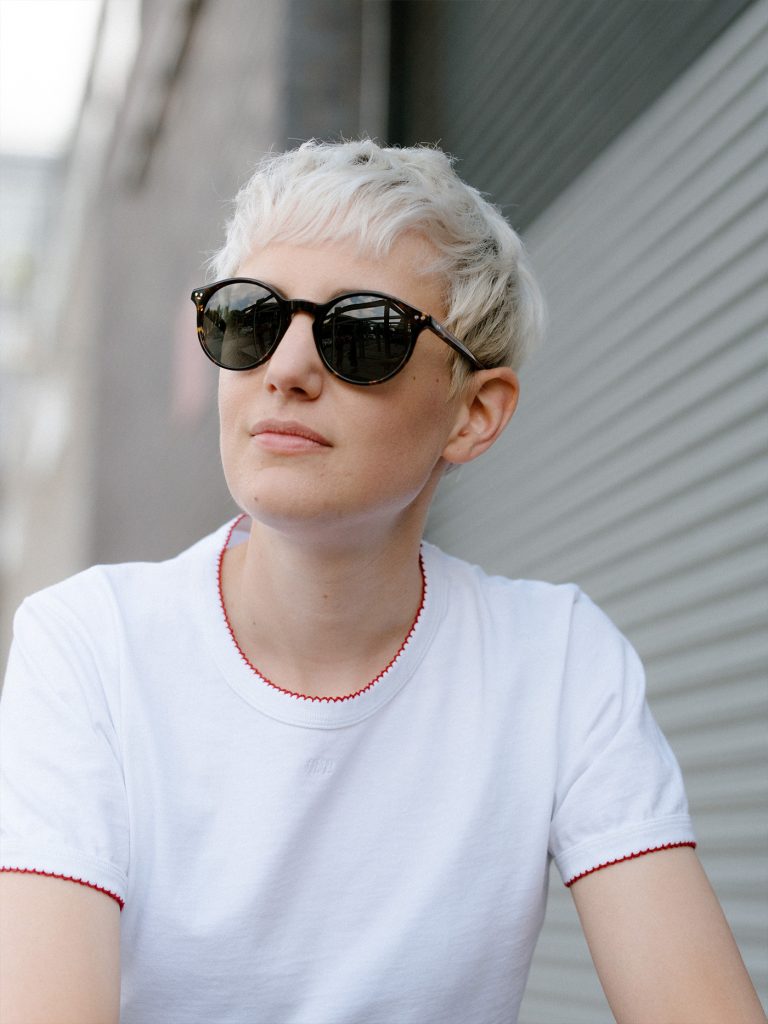

It wasn’t an easy film to fund at first, she tells me, but she hadn’t let that obstacle stop her in the past and wasn’t about to now. “Some funders weren’t ready to hear that story, but that just made me feel like it was even more important to get it out there!”
A decade into a career that has seen Loran toil hours on end in a working culture that made its employees feel replaceable — “it’s why I moved out of TV, I found it very exploitative” — she had finally achieved what only seemed possible to a zealous young teenager from Somerset, whose eager eyes wanted nothing more than to tell the world what it saw.
Sat nervously on plush, red-velvet chairs in a Southbank cinema, at the premiere of her first feature film, she is surrounded by pitch black darkness. Light from the screen beams onto its audience, revealing tears and laughter. Then, as the credit sequence rolls, she sees it for the first time on a feature film:
Producer – Loran Dunn.
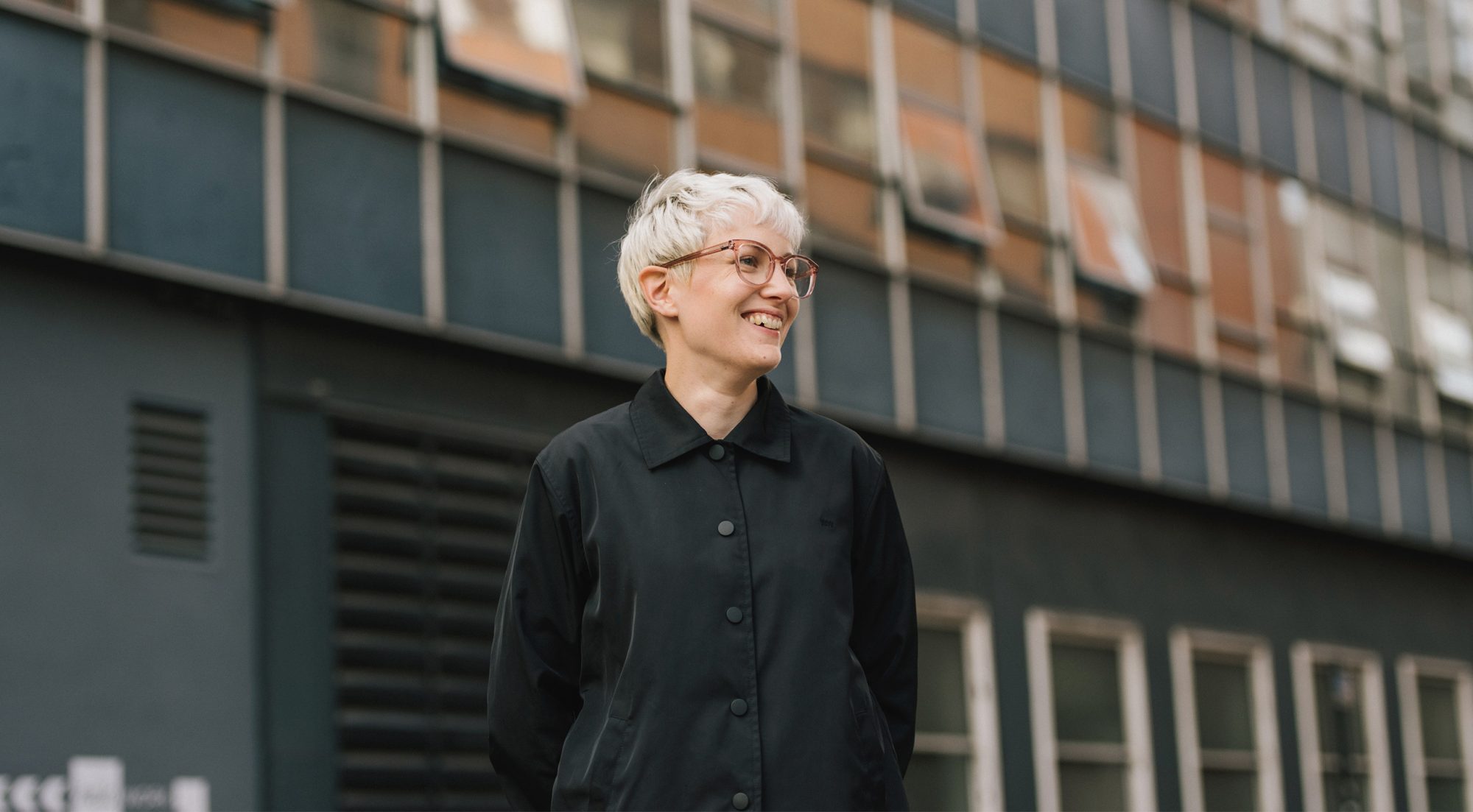
‘A New Revolution’ is produced in collaboration with Ace & Tate and we’re proud to be asked to document the creative community in the city we’ve been based in since starting intern in 2013. Over the past month, we’ve profiled the individuals who embody Manchester’s unparalleled spirit and have sought to understand what it is that drives and inspires them. The series marks Ace & Tate’s arrival in the city and we’re creating a limited edition publication available exclusively at the launch event on August 2nd, so be sure to join us and give them a hearty Mancunian welcome. This piece was written by Joe Pagnelli and photographed by Lauren Maccabee who was assisted by Harriet Broom. Loran was styled by Georgia Boal-Russell, with hair and makeup by Sophie King. Be sure to follow Loran on Insta and Twitter and to check out Delaval here. We’ll bee again back next week with the final instalment.

